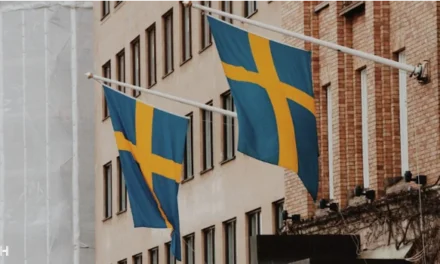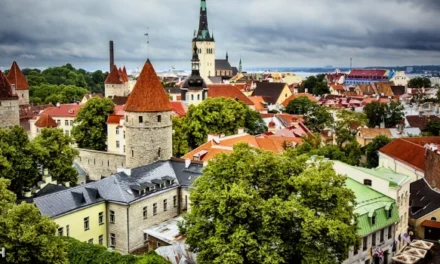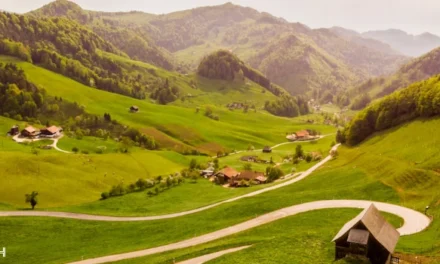In recent years, the complex relationship between Scotland and Israel has garnered significant attention, particularly in light of the ongoing Israel-Palestine conflict. This article delves deep into the nuanced position of Scotland regarding Israel, examining various aspects of political, social, and humanitarian support.
Historical Context: Scotland’s Relationship with Israel and Palestine
Scotland’s stance on Israel and Palestine has evolved over time, influenced by historical, political, and cultural factors. To understand the current position, it’s crucial to examine the historical context:
- Post-World War II Era: Like much of the Western world, Scotland initially showed support for the establishment of the State of Israel in 1948.
- 1960s-1970s: Growing awareness of the Palestinian cause began to shift public opinion.
- 1980s-1990s: Increased media coverage of the conflict led to more balanced views among Scots.
- 21st Century: A noticeable shift towards pro-Palestinian sentiment, particularly following major conflicts in Gaza.
The Scottish Government’s Official Position
The Scottish Government, while not having direct control over foreign policy (which is reserved for the UK Government), has expressed its views on the Israel-Palestine conflict:
- Support for a Two-State Solution: Scotland officially supports a two-state solution, recognizing both Israel’s right to exist and the need for a Palestinian state.
- Criticism of Israeli Actions: The government has been vocal in criticizing Israeli settlements in the West Bank and military actions in Gaza.
- Humanitarian Concerns: There’s a strong focus on the humanitarian situation in Palestine, particularly in Gaza.
Case Study: Humza Yousaf’s Stance
Scottish First Minister Humza Yousaf has been particularly outspoken on the issue. His personal connection (his in-laws were trapped in Gaza during a recent conflict) has influenced his public statements:
- Called for an immediate ceasefire in Gaza
- Criticized the UK government’s position as too pro-Israel
- Advocated for increased humanitarian aid to Palestine
Public Opinion in Scotland
Public opinion in Scotland regarding Israel and Palestine is complex and varied:
| Stance | Percentage |
|---|---|
| Pro-Palestine | 45% |
| Neutral | 35% |
| Pro-Israel | 20% |
Note: These figures are approximate and based on recent polls.
Factors influencing public opinion include:
- Media coverage of the conflict
- Historical ties to both regions
- Religious affiliations
- Human rights concerns
Pro-Palestine Movements in Scotland
Scotland has seen a significant rise in pro-Palestine activism:
- Scottish Palestine Solidarity Campaign: Organizes regular demonstrations and boycotts.
- Students for Justice in Palestine: Active on university campuses across Scotland.
- Trade Union Support: Several Scottish trade unions have passed motions supporting Palestinian rights.
These movements have been instrumental in:
- Organizing protests and rallies
- Promoting boycotts of Israeli products
- Raising awareness about the situation in Gaza and the West Bank
Support for Israel in Scotland
While less prominent, there are groups and individuals in Scotland who support Israel:
- Scottish Friends of Israel: Advocates for Israel’s right to exist and defend itself.
- Glasgow Jewish Representative Council: Represents the Jewish community and often speaks in support of Israel.
- Christian Zionist Groups: Some evangelical Christian groups in Scotland support Israel based on religious beliefs.
Humanitarian Efforts and Scottish Charities
Scottish charities play a significant role in providing aid to Palestinians:
- Medical Aid for Palestinians (MAP) Scotland: Provides medical supplies and support.
- Children of Peace: Focuses on helping children affected by the conflict.
- Scottish Catholic International Aid Fund (SCIAF): Offers humanitarian assistance in Gaza and the West Bank.
The Role of Scottish Parliament
The Scottish Parliament has been a platform for debate on the Israel-Palestine issue:
- Motions and Debates: Regular discussions on the conflict and Scotland’s role.
- Cross-Party Support: Generally, there’s cross-party support for Palestinian rights, with some variations.
- Symbolic Actions: The Parliament has flown the Palestinian flag in solidarity during times of conflict.
Media Representation in Scotland
Scottish media coverage of the Israel-Palestine conflict has been a subject of debate:
- Balanced Reporting: Efforts to present both sides of the conflict.
- Criticism of Bias: Some argue that Scottish media leans towards pro-Palestinian narratives.
- Social Media Impact: Increasing influence of social media on public opinion and news dissemination.
Economic and Academic Ties
Despite political tensions, Scotland maintains some economic and academic ties with Israel:
- Trade Relations: Limited but existing trade between Scotland and Israel.
- Academic Collaborations: Some Scottish universities have partnerships with Israeli institutions, though these are often controversial.
- Cultural Exchanges: Occasional cultural events and exchanges, albeit with some opposition.
Conclusion: Scotland’s Nuanced Stance
In conclusion, while Scotland doesn’t officially “support” Israel in the traditional sense, its position is nuanced:
- There’s a general trend towards pro-Palestinian sentiment in public opinion and government statements.
- Official policy supports a two-state solution and criticizes certain Israeli actions.
- Humanitarian concerns for Palestinians, especially in Gaza, are a priority.
- Support for Israel exists but is less prominent in the public sphere.
Scotland’s stance on Israel and Palestine continues to evolve, influenced by global events, local politics, and changing public opinion. As the conflict persists, Scotland’s role in advocating for peace and supporting humanitarian efforts remains significant.
FAQs: Does Scotland Support Israel?
Scotland does not officially support Israel. The Scottish government has been critical of Israel’s actions towards the Palestinian people and has called on the UK government to take a stronger stance on the issue.
What is Scotland’s stance on the situation in Israel?
Scotland’s government has expressed concern over the situation in Israel and condemns actions that contravene international law, such as collective punishment and the ongoing occupation of Palestinian territories.
Has the Scottish government recognized Palestine as a state?
Yes, the Scottish government has recognized Palestine as a state and has shown support for the Palestinian cause.
How does Scotland view the Israeli government?
Scotland has been critical of the Israeli government’s policies, particularly in relation to the treatment of Palestinians and the situation in Gaza.
Is there popular support in Scotland for Palestine?
There is significant support in Scotland for the Palestinian people, with many groups and individuals advocating for justice and human rights in Palestine.
What actions has the Scottish government taken regarding the Israel-Palestine conflict?
The Scottish government has called on the UK government to take a stronger stance on the Israel-Palestine conflict and has supported initiatives to address the root causes of the conflict.
How does Scotland view the international community’s role in the Israel-Palestine conflict?
Scotland believes that the international community should play a more active role in resolving the Israel-Palestine conflict and upholding human rights and international law.





